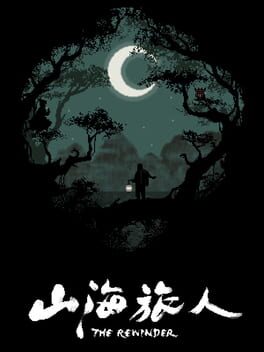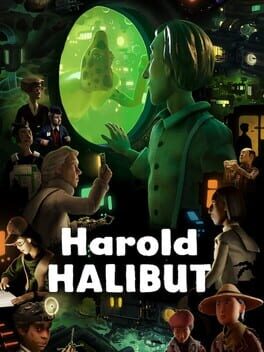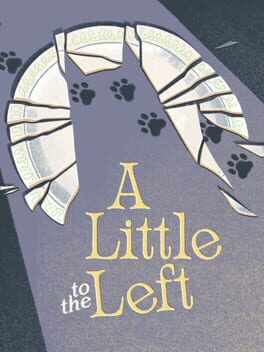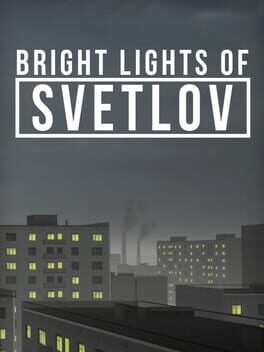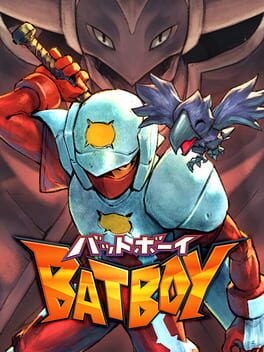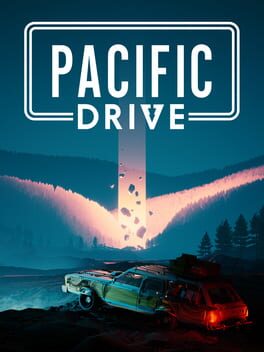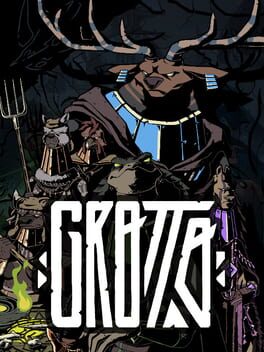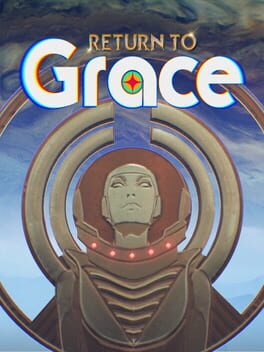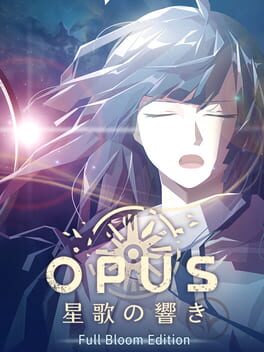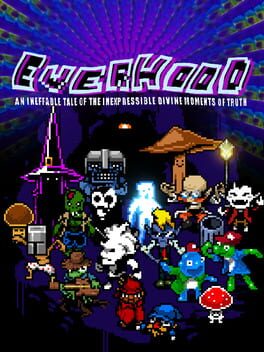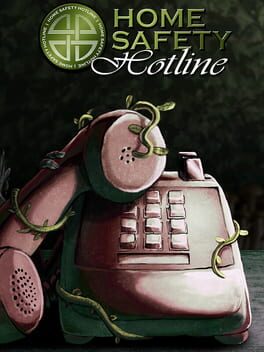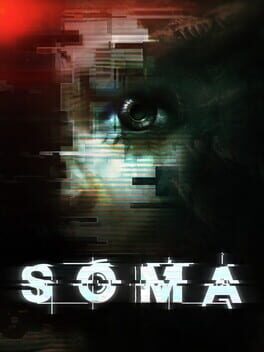Giulianosse
2024
Rain World; Fez; Environmental Station Alpha. If your reaction is "hell yeah" to any of these following games, then you'll love Animal Well.
Decently sized metroidpuzzlevania that rewards exploration and incentivizes the player to tinker and break the game whenever possible. Great movement mechanics, inventive gadgets, fantastic sound design, excellent puzzles and a well-thought map and level design. Minimal handholding is part of the intended experience, but the game does an excellent job of subconsciously guiding us toward breakthroughs and "A-ha!" moments.
Some players will watch the credits roll and feel satisfied while others will spend many more hours unearthing every little secret in the game - and boy there's plenty of them. I feel like I hit a barrier at 52 eggs, and that's perfectly OK.
Decently sized metroidpuzzlevania that rewards exploration and incentivizes the player to tinker and break the game whenever possible. Great movement mechanics, inventive gadgets, fantastic sound design, excellent puzzles and a well-thought map and level design. Minimal handholding is part of the intended experience, but the game does an excellent job of subconsciously guiding us toward breakthroughs and "A-ha!" moments.
Some players will watch the credits roll and feel satisfied while others will spend many more hours unearthing every little secret in the game - and boy there's plenty of them. I feel like I hit a barrier at 52 eggs, and that's perfectly OK.
2021
Very concise and well-crafted experience. The puzzles were engaging without being too difficult, the narrative had its twists and surprisingly emotional moments. The game respects your time and cut on unnecessary backtracking or exploration. The length was just perfect - not too short and didn't overstay its welcome.
But perhaps the best aspect of The Rewinder is its setting - it's heavily based into Chinese folklore, its mythology and deities. The game deals with this in a very digestible and approachable way, with tons of glossary entries and expositive dialogue which don't feel out of place and helps us (speaking as a westerner myself) get immersed into its rich lore. I love when a media piece allows us a window into the culture and customs of a different people.
The game oozes passion and feels a labor of love. Big props to Misty Mountain Studio!
But perhaps the best aspect of The Rewinder is its setting - it's heavily based into Chinese folklore, its mythology and deities. The game deals with this in a very digestible and approachable way, with tons of glossary entries and expositive dialogue which don't feel out of place and helps us (speaking as a westerner myself) get immersed into its rich lore. I love when a media piece allows us a window into the culture and customs of a different people.
The game oozes passion and feels a labor of love. Big props to Misty Mountain Studio!
2024
First and foremost: what a visually stunning game Harold Halibut is. Everything is made out of clay models, from characters to backgrounds and props. The game's worth for its visuals alone.
Another big positive is its story. Not narrative, might I say. I'll get in the "howevers" in a while. Its universe feels fresh and thought of, especially the Flumylyn society, language and customs. Harold Halibut is also very wholesome, cozy, optimistic and soulful - it's refreshing to play a game that doesn't use violence, conflict or attrition as its basis. It's a joy to find out more and get yourself acquainted with each of the many intresting characters you'll encounter. Some people had qualms with the protagonist himself, but I didn't mind - his character arc is pretty consistent and defined. Because, while it might not seem at a first glance, it's a game about people, relationships and their sense of belonging.
However, it pains me to say Harold Halibut suffers heavily from pacing issues. I have no problems with slow games, but it is painfully, glacially slow. It has too much backtracking, too much redundant dialogue, too much downtime... which makes it even more puzzling because the good sections are really good (shout-out to the downright genial "Exchange" segment that looks something straight out of Evangelion), but you have to bear through hours of busywork and walking to get there. It's a 5h game stretched into a 14h body. That's the main reason why my score isn't higher.
Still, some story beats - especially its overarching message - are very beautiful and I surprisingly got emotional by the end. As much as Harold Halibut is a terribly bloated experience, you can't help but feel sad when the adventure eventually ends. It has a lingering charm not everyone will appreciate, but for those who do it's great.
Another big positive is its story. Not narrative, might I say. I'll get in the "howevers" in a while. Its universe feels fresh and thought of, especially the Flumylyn society, language and customs. Harold Halibut is also very wholesome, cozy, optimistic and soulful - it's refreshing to play a game that doesn't use violence, conflict or attrition as its basis. It's a joy to find out more and get yourself acquainted with each of the many intresting characters you'll encounter. Some people had qualms with the protagonist himself, but I didn't mind - his character arc is pretty consistent and defined. Because, while it might not seem at a first glance, it's a game about people, relationships and their sense of belonging.
However, it pains me to say Harold Halibut suffers heavily from pacing issues. I have no problems with slow games, but it is painfully, glacially slow. It has too much backtracking, too much redundant dialogue, too much downtime... which makes it even more puzzling because the good sections are really good (shout-out to the downright genial "Exchange" segment that looks something straight out of Evangelion), but you have to bear through hours of busywork and walking to get there. It's a 5h game stretched into a 14h body. That's the main reason why my score isn't higher.
Still, some story beats - especially its overarching message - are very beautiful and I surprisingly got emotional by the end. As much as Harold Halibut is a terribly bloated experience, you can't help but feel sad when the adventure eventually ends. It has a lingering charm not everyone will appreciate, but for those who do it's great.
2022
Markets itself as a cozy, zen organization game and is everything but. Some puzzles are extremely arbitrary to the point I found myself getting frustrated after having my answers get rejected without any indication whether I was close to the intended solution. The tips are terrible.
If you are looking for an actual relaxing game, steer clear of this one and go play Unpacking or Assemble With Care instead.
If you are looking for an actual relaxing game, steer clear of this one and go play Unpacking or Assemble With Care instead.
A short, straightforward and bitersweet story about a real incident that took place in the USSR during the 1970's.
Very low budget, limited interactivity, repetitive, spotty translation and okay-wish graphics. Where the game really shines, though, is in its ambiance. Bright Lights at Svetlov takes place mostly inside an apartment and it's evident the developer took great care into building an accurate depiction of a 1980's Soviet household. It feels like peeking through a window to the past.
Very low budget, limited interactivity, repetitive, spotty translation and okay-wish graphics. Where the game really shines, though, is in its ambiance. Bright Lights at Svetlov takes place mostly inside an apartment and it's evident the developer took great care into building an accurate depiction of a 1980's Soviet household. It feels like peeking through a window to the past.
2023
Bat Boy is basically Shovel Knight with a baseball bat instead of the iconic shovel. You got a classic 8-bit platforming gameplay split up between stages, a plethora of abilities, bosses, optional levels and a health/stamina upgrade mechanic. Sounds cool, right?
Unfortunately, unlike Shovel Knight, Bat Boy's weaknesses show up relatively fast. There's not much incentive to use most of your abilities save for a few of them (the invincibility bubble basically makes every boss and platforming challenge trivial), the story's very so-so, uninteresting cast of characters, meta progression is boring and there's almost no side content or meaningful collectibles.
But the most glaring issue to me was how the game underutilizes its main mechanic: batting. Aside from reflecting projectiles thrown by enemies and into switches, that's basically all there is. For a game with such heavy emphasis on baseball, they should definitely have invested more into this concept.
If you love Shovel Knight like me, perhaps you'll come to like Bat Boy as well for its creative level design filled with different gimmicks, classic platforming gameplay and beautiful pixel graphics. But don't go expecting the same level of polish and brilliantism - otherwise you're bound for disappointment.
Unfortunately, unlike Shovel Knight, Bat Boy's weaknesses show up relatively fast. There's not much incentive to use most of your abilities save for a few of them (the invincibility bubble basically makes every boss and platforming challenge trivial), the story's very so-so, uninteresting cast of characters, meta progression is boring and there's almost no side content or meaningful collectibles.
But the most glaring issue to me was how the game underutilizes its main mechanic: batting. Aside from reflecting projectiles thrown by enemies and into switches, that's basically all there is. For a game with such heavy emphasis on baseball, they should definitely have invested more into this concept.
If you love Shovel Knight like me, perhaps you'll come to like Bat Boy as well for its creative level design filled with different gimmicks, classic platforming gameplay and beautiful pixel graphics. But don't go expecting the same level of polish and brilliantism - otherwise you're bound for disappointment.
2024
Pacific Drive is a rare case of a game that wrangles an oversaturated and stale genre by its neck and spin it into something original. It grabs everything about survival games and put it in four wheels.
Instead of the usual hunger, tiredness etc you now have fuel, battery, wear & tear and many other small gameplay mechanics and details that together forms a very cohesive big picture. Tending after your car can be a bonding exercise - and sometimes even relaxing, diligently fixing your car, organizing loot and researching new parts from the comfort of your garage after a panicked close call extraction.
One thing this game got absolutely right is the quirks system. As you progress through the adventure, your car starts to develop "malfunctions" that can range from being harmless, annoying, detrimental and even beneficial. It feels like your car is another main character by itself.
If you're a fan of diegetic sim games such as Jalopy, enjoy works of speculative fiction such as Roadside Picnic/Stalker and isn't bothered by survival mechanics and a little bit of grind, then this game is for you.
The only thing that somehow soured my experience is that it could have used a little bit more variety. Anomalies are awesome, but after a while you start to notice there's only a few types of them. Can't shake the feeling the game could've been more ambitions and creative in this regard. Same for the POIs: at some point I started ignoring them because they offered too little loot for too much effort (and it's always distributed in the same boxes/bags/etc). Lastly, Pacific Drive would have benefited from more unique stuff (such as exotic parts/equipment and decor) to reward exploration other than generic resources and the occasional random decal or paint.
Instead of the usual hunger, tiredness etc you now have fuel, battery, wear & tear and many other small gameplay mechanics and details that together forms a very cohesive big picture. Tending after your car can be a bonding exercise - and sometimes even relaxing, diligently fixing your car, organizing loot and researching new parts from the comfort of your garage after a panicked close call extraction.
One thing this game got absolutely right is the quirks system. As you progress through the adventure, your car starts to develop "malfunctions" that can range from being harmless, annoying, detrimental and even beneficial. It feels like your car is another main character by itself.
If you're a fan of diegetic sim games such as Jalopy, enjoy works of speculative fiction such as Roadside Picnic/Stalker and isn't bothered by survival mechanics and a little bit of grind, then this game is for you.
The only thing that somehow soured my experience is that it could have used a little bit more variety. Anomalies are awesome, but after a while you start to notice there's only a few types of them. Can't shake the feeling the game could've been more ambitions and creative in this regard. Same for the POIs: at some point I started ignoring them because they offered too little loot for too much effort (and it's always distributed in the same boxes/bags/etc). Lastly, Pacific Drive would have benefited from more unique stuff (such as exotic parts/equipment and decor) to reward exploration other than generic resources and the occasional random decal or paint.
2021
"Let's imagine you say blue and there are three individuals. The first one, who lives by the sea, reckons you're talking about water. The second one, who lives on a mountain peak, thinks of the sky. And the third one becomes sad. Just because."
You are a soothsayer, a silent sage with the power to read stars and give constellations to those who ask for their guidance. Each one has its own meaning, but the way people are going to interpret it is entirely up to them. You'll interact with a variety of individuals and get directly - and indirectly - mixed up in affairs ranging from trivial (such as the color of someone's scarf) to life-defining ones.
You can get as involved as you want in these choices - which the game will make sure to remember you of - but if you want, you can very much play as an actual diviner. What if instead of picking the options you personally feel are better, you let fate pick them for you?
That's precisely what I did. I tried guessing constellations based entirely on abstract concepts, or feelings I was experiencing at the moment. I let the stars speak through my fingers. I cast away the mantle of the main character.
And boy if it wasn't one of my most memorable gaming experiences. By willfully relinquishing agency, you become quite literally another character inserted into that world, being at the mercy of the stars themselves and adding another layer of complexity to the narrative: now you, the player, must also struggle through the subjectivity of language and its meaning. And live through its consequences.
Without getting into spoilers, but playing the game that way makes some of the latter parts of Grotto truly special. The game continuously wrestles agency from and back to you in some shocking turn of events that left me reluctant to advance the plot, because it would mean I'd have to bear witness to the consequences of my actions... or inactions.
On the background, a disembodied voice talks with the seer, but might as well be talking to the player. It operates as some entity beyond the fourth wall, someone who sees through the charade. And as it says in the beginning of the game: make no mistake - this is a story about failure.
Last but not least importantly, Brainwash Gang deserves praise for their completely unique take on a fictional culture. Much of the game takes place with you interacting with individuals of a society known as the Brutes, genderless and anthropomorphic animals with a completely warped sense of community, justice and parenthood. Although it bears some similarities to our real world counterparts, it feels completely alien at the same time, enriching the experience.
You are a soothsayer, a silent sage with the power to read stars and give constellations to those who ask for their guidance. Each one has its own meaning, but the way people are going to interpret it is entirely up to them. You'll interact with a variety of individuals and get directly - and indirectly - mixed up in affairs ranging from trivial (such as the color of someone's scarf) to life-defining ones.
You can get as involved as you want in these choices - which the game will make sure to remember you of - but if you want, you can very much play as an actual diviner. What if instead of picking the options you personally feel are better, you let fate pick them for you?
That's precisely what I did. I tried guessing constellations based entirely on abstract concepts, or feelings I was experiencing at the moment. I let the stars speak through my fingers. I cast away the mantle of the main character.
And boy if it wasn't one of my most memorable gaming experiences. By willfully relinquishing agency, you become quite literally another character inserted into that world, being at the mercy of the stars themselves and adding another layer of complexity to the narrative: now you, the player, must also struggle through the subjectivity of language and its meaning. And live through its consequences.
Without getting into spoilers, but playing the game that way makes some of the latter parts of Grotto truly special. The game continuously wrestles agency from and back to you in some shocking turn of events that left me reluctant to advance the plot, because it would mean I'd have to bear witness to the consequences of my actions... or inactions.
On the background, a disembodied voice talks with the seer, but might as well be talking to the player. It operates as some entity beyond the fourth wall, someone who sees through the charade. And as it says in the beginning of the game: make no mistake - this is a story about failure.
Last but not least importantly, Brainwash Gang deserves praise for their completely unique take on a fictional culture. Much of the game takes place with you interacting with individuals of a society known as the Brutes, genderless and anthropomorphic animals with a completely warped sense of community, justice and parenthood. Although it bears some similarities to our real world counterparts, it feels completely alien at the same time, enriching the experience.
2023
Return to Grace is a bite sized linear adventure game with a novel, but ultimately underused premise. While there's some semblance of a mystery, its unraveling and big reveal played it very safe. It's that kind of story you forget in a day or two.
Interacting with the different AI personalities was the high point of the adventure, it reminded me of Portal 2's cores, although not even close to being as brilliant or memorable, and the game has some semblance of reactivity to your (sparse) choices, even though they don't change the outcome that much.
People have voiced disapproval over your character having too much leverage and opinions about what's happening around her, but I didn't mind. A Tabula rasa or self insert character wouldn't have worked well for what the game proposes.
The puzzles - if I even dare to call them so - are easily the worst aspect of the game. Midway through it even gives you an option to completely bypass them, but it still seems a bad design choice to even include them in the first place. Another terrible design decision is locking you out of actions until all the respective dialogue has been played, which often forces you to keep staring at an object just waiting for the "use" prompt to be available.
Still, considering it's a 2h game (and on Game Pass to boot), there's not much to feel angry about it. Treat Return to Grace as if it were an interactive Love Death & Robots episode.
Interacting with the different AI personalities was the high point of the adventure, it reminded me of Portal 2's cores, although not even close to being as brilliant or memorable, and the game has some semblance of reactivity to your (sparse) choices, even though they don't change the outcome that much.
People have voiced disapproval over your character having too much leverage and opinions about what's happening around her, but I didn't mind. A Tabula rasa or self insert character wouldn't have worked well for what the game proposes.
The puzzles - if I even dare to call them so - are easily the worst aspect of the game. Midway through it even gives you an option to completely bypass them, but it still seems a bad design choice to even include them in the first place. Another terrible design decision is locking you out of actions until all the respective dialogue has been played, which often forces you to keep staring at an object just waiting for the "use" prompt to be available.
Still, considering it's a 2h game (and on Game Pass to boot), there's not much to feel angry about it. Treat Return to Grace as if it were an interactive Love Death & Robots episode.
A surprisingly well developed universe brimming with intresting lore set in an incredibly grounded setting featuring political strife, interplanetary wars, corporativism and a techno-magical ether/lifeforce known as Lumen. I would totally watch an original series set in the world of Opus. It's fantastical.
It's also bogged down by one of the most aggressively mediocre stories I've ever seen in a videogame. Borderline one dimensional characters who are basically walking anime stereotypes with zero personal growth aside from the final hour and a trope-filled narrative with minimal development.
If you've seen the first scene where the cast is introduced: congratulations, you've already seen it all. The honorable male protagonist with a savior complex and a tendency to apologize for everything he does, the female idealistic pariah with a heart of gold (who's obviously also the MC's platonic love interest) and her sidekick slash adopted protegé - a kid with a troubled past who literally spends the entire playthrough cussing and belittling the protagonist on every dialogue interaction they have. It's as grating as dragging your face through a mile of broken glass. Their motives stay the same throughout the entire game - and you'll be reminded of them quite a few times. Basically all the time.
Hilariously enough, the only character with any semblance of a well written story was the bandit leader known as Bones, who initially shows up as an antagonist and after being unexpectedly saved by the protagonist, gradually comes to term with his own life choices while serving time in prison.
As if the story wasn't bad enough, the gameplay revolves around an absolutely terrible system of RNG encounters, dice rolls and an abysmal resource management mechanic. Your reward for guessing the right outcomes is getting enough money to buy fuel and resources to continue your journey. Your penalty for being unlucky is having to do even more dice rolls... so you can continue doing the aforementioned dice rolls. Exhilarating.
Exploration gameplay gets the job done, you basically walk from point A to point B, but for a game that prides itself so much about its relationship with music, the "puzzles" (if one could even call those sequences as such) are extremely uninteresting and repetitive.
It's a 10h game that would've been infinitely better had it been just an average 3h visual novel. There's some good story there and touching moments ruined by everything else in between.
I only stuck through its entirety because of the raving reviews - after I realized it wasn't getting any better than that, I was already too far so might as well power through the rest - sunken time fallacy and all that. Maybe it's good enough for people who are used to generic, cheesy emotional anime narratives, but for everyone else, there's better games to invest your precious time into.
It's also bogged down by one of the most aggressively mediocre stories I've ever seen in a videogame. Borderline one dimensional characters who are basically walking anime stereotypes with zero personal growth aside from the final hour and a trope-filled narrative with minimal development.
If you've seen the first scene where the cast is introduced: congratulations, you've already seen it all. The honorable male protagonist with a savior complex and a tendency to apologize for everything he does, the female idealistic pariah with a heart of gold (who's obviously also the MC's platonic love interest) and her sidekick slash adopted protegé - a kid with a troubled past who literally spends the entire playthrough cussing and belittling the protagonist on every dialogue interaction they have. It's as grating as dragging your face through a mile of broken glass. Their motives stay the same throughout the entire game - and you'll be reminded of them quite a few times. Basically all the time.
Hilariously enough, the only character with any semblance of a well written story was the bandit leader known as Bones, who initially shows up as an antagonist and after being unexpectedly saved by the protagonist, gradually comes to term with his own life choices while serving time in prison.
As if the story wasn't bad enough, the gameplay revolves around an absolutely terrible system of RNG encounters, dice rolls and an abysmal resource management mechanic. Your reward for guessing the right outcomes is getting enough money to buy fuel and resources to continue your journey. Your penalty for being unlucky is having to do even more dice rolls... so you can continue doing the aforementioned dice rolls. Exhilarating.
Exploration gameplay gets the job done, you basically walk from point A to point B, but for a game that prides itself so much about its relationship with music, the "puzzles" (if one could even call those sequences as such) are extremely uninteresting and repetitive.
It's a 10h game that would've been infinitely better had it been just an average 3h visual novel. There's some good story there and touching moments ruined by everything else in between.
I only stuck through its entirety because of the raving reviews - after I realized it wasn't getting any better than that, I was already too far so might as well power through the rest - sunken time fallacy and all that. Maybe it's good enough for people who are used to generic, cheesy emotional anime narratives, but for everyone else, there's better games to invest your precious time into.
If you watched and liked Robert Egger's brilliant The Lighthouse, you'll love this game, right? Well, kinda.
Visually and atmospherically, NOLUL is a gorgeously realized game. The low fidelity PS1-esque graphics perfectly complement the lonely experience of being a lightkeeper stranded in a seemingly desert island and, to its credit, most of the horror elements stem from its creepy ambiance rather than cheap jumpscares. There's a deeply unsettling feeling of diligently doing your everyday chores with the looming sensation there something's terribly wrong but you can't quite put your finger on it.
Story. This is where NOLUL loses a lot of its shine. While its plot is intriguing and leaves you feeling satisfied by the end, you probably won't experience it to its full extent by yourself. Unfortunately, this is one of those games with multiple endings that require you to look up a guide because the (very few) hints are excessively cryptic and not enough for you to figure out everything by yourself.
The plot itself is also told in a purposefully disconnected, non-linear way and its obscure overtones get easily lost because of just how little guidance there is. And this is coming from someone who's used to being challenged by the media I consume.
While I appreciate the dev's vision, I can't help but think this could've been a much better game if it focused more on the first aspects of my review (intresting atmosphere, psychological horror) rather than the latter (needlessly convoluted story). Play it for the vibes, if nothing else.
Visually and atmospherically, NOLUL is a gorgeously realized game. The low fidelity PS1-esque graphics perfectly complement the lonely experience of being a lightkeeper stranded in a seemingly desert island and, to its credit, most of the horror elements stem from its creepy ambiance rather than cheap jumpscares. There's a deeply unsettling feeling of diligently doing your everyday chores with the looming sensation there something's terribly wrong but you can't quite put your finger on it.
Story. This is where NOLUL loses a lot of its shine. While its plot is intriguing and leaves you feeling satisfied by the end, you probably won't experience it to its full extent by yourself. Unfortunately, this is one of those games with multiple endings that require you to look up a guide because the (very few) hints are excessively cryptic and not enough for you to figure out everything by yourself.
The plot itself is also told in a purposefully disconnected, non-linear way and its obscure overtones get easily lost because of just how little guidance there is. And this is coming from someone who's used to being challenged by the media I consume.
While I appreciate the dev's vision, I can't help but think this could've been a much better game if it focused more on the first aspects of my review (intresting atmosphere, psychological horror) rather than the latter (needlessly convoluted story). Play it for the vibes, if nothing else.
2021
I wish people quit comparing Everhood to Undertale. While they share similarities, they're almost nothing alike. It was precisely what made me drop the game a few years ago - I had just played Undertale and got disappointed at Everhood's "lesser" experience and apparently plagiarized style.
Now, after a few years, I finally decided to give it a second chance and, I dare to say, it's actually superior to Undertale in some aspects. So much it deserves to be analyzed as its own thing.
To begin: I loved how Everhood already establishes its intention of breaking the 4th wall right as you click "start". Without spoiling much, it's sublime how the game employs storytelling and the nature of its medium to actively challenge us - the player - both physically and, surprisingly enough, psychologically as well.
It's been a while since an interactive work has made me so thoughtful about my decisions. I'd be lying if I didn't get teary eyed during some revelations and phisophical arguments: it invites us to think about our conceptions of mortality and eternity, wrapped in a tight layer of Buddhism. And it's absolutely dripping in metaphorical beauty, if you're up to engage the game's messages in its intended higher art domain, not constrained by the physical boundaries of your direct videogame experience.
On the surface, though - and I'm not dismissing it at all by saying that - Everhood features a cast of likeable characters, fun and inventive rhythm battles (which twists and bends its genre conventions at every opportunity it gets) coated in a thick varnish of the famous "Undertale humor".
Speaking of Undertale, the only comparison I'm willing to make in regards to Everhood - beside it's humor and sometimes absurdist comedy style - is that the latter cleverly rolls both Undertale's New Game and New Game+ experience into a single coherent package. Which to me is a big plus.
Differently from the aforementioned, though, I think Everhood's lessons and truths changed me (or, in better words, instigated me to change) into a better person. It's an experience I'll carry on and keep thinking about for quite some time - and I'm grateful about it.
Now, after a few years, I finally decided to give it a second chance and, I dare to say, it's actually superior to Undertale in some aspects. So much it deserves to be analyzed as its own thing.
To begin: I loved how Everhood already establishes its intention of breaking the 4th wall right as you click "start". Without spoiling much, it's sublime how the game employs storytelling and the nature of its medium to actively challenge us - the player - both physically and, surprisingly enough, psychologically as well.
It's been a while since an interactive work has made me so thoughtful about my decisions. I'd be lying if I didn't get teary eyed during some revelations and phisophical arguments: it invites us to think about our conceptions of mortality and eternity, wrapped in a tight layer of Buddhism. And it's absolutely dripping in metaphorical beauty, if you're up to engage the game's messages in its intended higher art domain, not constrained by the physical boundaries of your direct videogame experience.
On the surface, though - and I'm not dismissing it at all by saying that - Everhood features a cast of likeable characters, fun and inventive rhythm battles (which twists and bends its genre conventions at every opportunity it gets) coated in a thick varnish of the famous "Undertale humor".
Speaking of Undertale, the only comparison I'm willing to make in regards to Everhood - beside it's humor and sometimes absurdist comedy style - is that the latter cleverly rolls both Undertale's New Game and New Game+ experience into a single coherent package. Which to me is a big plus.
Differently from the aforementioned, though, I think Everhood's lessons and truths changed me (or, in better words, instigated me to change) into a better person. It's an experience I'll carry on and keep thinking about for quite some time - and I'm grateful about it.
2024
If you crave anything analog horror like Local58 or Gemni Home Entertainment, you'll love Home Safety Hotline. It starts with you picking up calls about a deceptively mundane collection of household critters and issues we're used to, but as each day passes you get introduced to the more occult, creepy, otherworldly, folklorical and sometimes whimsical "pests" that could potentially inhabit our home.
I, however would have loved an even bigger collection of creatures and phenomena to identify. As the game approaches its last day (disappointingly quickly, keep in mind), I'm left with a feeling of wanting more, especially since most of the entries are only featured once in calls and some of them are very straightforward.
The best calls are undoubtedly those where you're wondering if the customer is being plagued by an eldritch metamorphic being, a neat freak fairy that hides in your drain... or just a frozen pipe.
I can see where the dev was going with the ending, but the last riddles "puzzle" was just... terrible, both thematically and from a gameplay perspective.
I, however would have loved an even bigger collection of creatures and phenomena to identify. As the game approaches its last day (disappointingly quickly, keep in mind), I'm left with a feeling of wanting more, especially since most of the entries are only featured once in calls and some of them are very straightforward.
The best calls are undoubtedly those where you're wondering if the customer is being plagued by an eldritch metamorphic being, a neat freak fairy that hides in your drain... or just a frozen pipe.
I can see where the dev was going with the ending, but the last riddles "puzzle" was just... terrible, both thematically and from a gameplay perspective.
2015
Absolutely brainteaser of a narrative that prodded me to question myself, my concepts of consciousness and gave me mild existential crisis at some points. It was the first game in which I needed to take a minute to actually consider the implications of a decision.
The atmosphere is perfect and a big positive if you're a fan of biomechanical horror. The expertly crafted environmental storytelling elements make learning about SOMA's plot a very enjoyable and fluid experience in what may be Frictional's best game in this department so far.
Curiously enough, it also has one of the worst gameplays of Frictional's titles. The monsters operate under very articifical and game-y conditions (the exploration is broken by clearly telegraphed "run and hide" sections and the creatures themselves follow a very on rails behavior).
I actually recommend playing SOMA on the alternate difficulty mode where monsters can't kill you, so you can appreciate the story at your own pace and read all the logs without feeling rushed.
The atmosphere is perfect and a big positive if you're a fan of biomechanical horror. The expertly crafted environmental storytelling elements make learning about SOMA's plot a very enjoyable and fluid experience in what may be Frictional's best game in this department so far.
Curiously enough, it also has one of the worst gameplays of Frictional's titles. The monsters operate under very articifical and game-y conditions (the exploration is broken by clearly telegraphed "run and hide" sections and the creatures themselves follow a very on rails behavior).
I actually recommend playing SOMA on the alternate difficulty mode where monsters can't kill you, so you can appreciate the story at your own pace and read all the logs without feeling rushed.
2022
William, your character, is unable to express himself. So the player has to help him move his facial muscles. This system is what dictates Who's Lila choice-based "social horror" gameplay. You steer the conversation and outcomes depending on your face.
However, that is surprisingly the least weird part of this 1 bit point and click mystery. The game itself is quite short, so you'll replay it a few times for different endings. But, without spoiling, at one point things get... very meta, and you'll have to interact with stuff outside the game to progress. Kinda like an ARG.
And this is where Who's Lila becomes absolute bonkers. It barrages you with Jungian psychology, concepts related to the archetype of ideas and ideals, Ego, qualia, consciousness, the notion of agency, personhood, the occult and esoteric. The elusive implications of its concepts defy rational though and gave me a harrowing feeling of existential dread.
Unfortunately, this game is impossible to complete without a guide because while most of the endings are relatively straightforward, others can be missed by not making just a single, unrelated and arbitrary choice early in the run. You'll have to tediously replay through lengthy sections just to attempt a different outcome.
That's the only thing preventing me from considering this game a straight masterpiece. Still, it's wonderfully unique in a conceptual sense and has some of the most insane narrative I've seen in recent years. I couldn't help but sit in wonder after wrapping up the true ending and beholding the final trick, most vile of them all.
However, that is surprisingly the least weird part of this 1 bit point and click mystery. The game itself is quite short, so you'll replay it a few times for different endings. But, without spoiling, at one point things get... very meta, and you'll have to interact with stuff outside the game to progress. Kinda like an ARG.
And this is where Who's Lila becomes absolute bonkers. It barrages you with Jungian psychology, concepts related to the archetype of ideas and ideals, Ego, qualia, consciousness, the notion of agency, personhood, the occult and esoteric. The elusive implications of its concepts defy rational though and gave me a harrowing feeling of existential dread.
Unfortunately, this game is impossible to complete without a guide because while most of the endings are relatively straightforward, others can be missed by not making just a single, unrelated and arbitrary choice early in the run. You'll have to tediously replay through lengthy sections just to attempt a different outcome.
That's the only thing preventing me from considering this game a straight masterpiece. Still, it's wonderfully unique in a conceptual sense and has some of the most insane narrative I've seen in recent years. I couldn't help but sit in wonder after wrapping up the true ending and beholding the final trick, most vile of them all.

